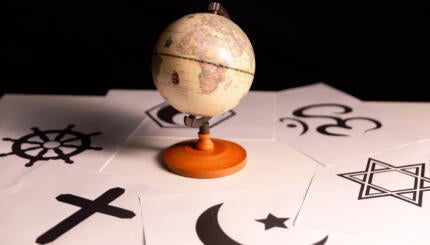Over the next few weeks, the Torah portions we are reading obsess about two terms with which translators struggle mightily. Part of the reason for this struggle is that the framework in which they make sense is one which is almost completely lacking for most modern people: the idea of a holy place. “Tumah” – usually translated as “impure” or “unclean” -although it actually doesn’t mean either, and its counterpart “taharah,” generally translated as “purity” or “cleanliness,” again, incorrectly, is a function of sacredness. What these words when translated in context mean, is simply “acceptable to bring into the place of sacredness.”
I had the great blessing last week of attending my rabbi’s retirement weekend, and during Rabbi Shevitz’s discussion of the Torah portion during Shabbat, he made a wonderful analogy that I think explains well what these words mean:
Dirt is a neutral object. In the garden, it is something that belongs, that is necessary. In the house, however, we don’t want it — we sweep it up, or vacuum it to get it out. Not because dirt is bad, but because a house is not the right place for it.
Over the last few days, there have been several articles circulating about whether or not Conservative rabbis should perform intermarriages. For those in interfaith relationships, this can be an excruciating subject: Some people feel as though when a rabbi says that he or she will not officiate at an interfaith wedding, it is a rejection of him or her as a person.
READ: Finding a Rabbi or Cantor to Officiate at an Interfaith Wedding
But the reality of the matter is that when rabbis officiate at wedding ceremonies, they do so according to the formula “k’daat moshe v’yisrael” — according to the laws of Moses and Israel– laws that apply to Jews only. In that sense, a rabbi officiating at a marriage of anyone who isn’t Jewish (including two non-Jews) makes no sense. But more importantly, a Jewish wedding is a space in which the Jewish family is continued. There are all kinds of holy spaces in the world — most of them aren’t Jewish holy spaces. But when a community encircles two Jews and binds them together according to Jewish practice, a Jewish holy space is created, one which is compared to that ancient temple’s altar.
When a Jew marries a non-Jew, it hopefully creates a holy place for those two people, but it isn’t a Jewish holy space. As non-Catholics cannot take Catholic communion — it is within their holy space — and so on with other religious groups and rites, to enter this place, one has to be Jewish.
It is, perhaps, odd to write for Rabbis Without Borders about a boundary. But there is a borderless wisdom to understanding that putting a border in some places allows for the borders to be more permeable in others. We can welcome in those people who choose to make a different sacred place than the Jewish one — one in which people have to negotiate and explore what their colors and textures are, one in which their stories are different than the stories of just one of them, one in which sacred places have different things which are appropriate in them — and different things that are not appropriate. And should that couple choose to make its home within the sacred spaces of the Jewish people, they will need to be able to either choose to limit themselves where their story is different or to be able to think about how to cross back and forth over that line — which necessitates understanding very deeply where that line is and what is inside it — and what they can bring across the borders as they cross them.
It may be that the dirt in the garden grows very different things. Mine has tomatoes and peppers, yours has morning glories and tulips. We can admire different kinds of gardens, while still understanding that they aren’t growing the same thing. And we can walk together in both gardens and discuss whether next year, you might want to grow an eggplant.
Torah
Pronunced: TORE-uh, Origin: Hebrew, the Five Books of Moses.



